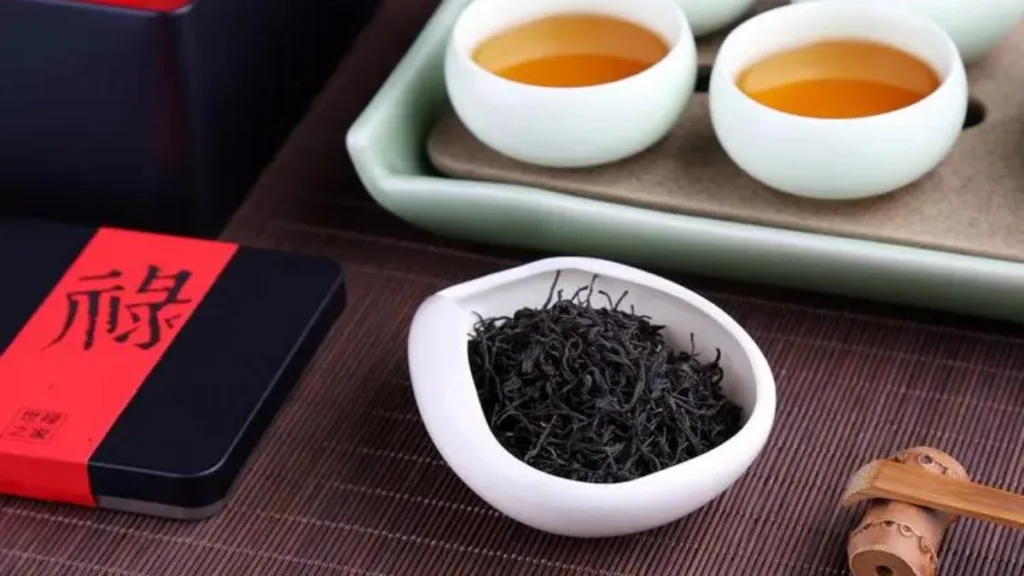Many people often ponder the question: Is it okay to drink black tea before bedtime to improve sleep quality? Contrary to common belief, consuming black tea at night may actually lead to insomnia.
Black tea, known for its full fermentation process, is perceived as having minimal stimulants compared to non-fermented or lightly fermented teas. Consequently, people tend to believe that drinking black tea won’t cause insomnia. However, the fermentation process in black tea primarily involves the enzymatic oxidation of polyphenols. While the content of polyphenols decreases after fermentation, the caffeine content in tea leaves remains relatively unaffected. As a result, the stimulating effects of caffeine persist.
Black tea is a common beverage in daily life, offering benefits such as hydration, relief from thirst, and a mild stimulant effect to stay alert and focused during the day. However, it is generally not recommended to consume black tea before bedtime. This is because black tea contains tea polyphenols and caffeine, which can stimulate the central nervous system, potentially leading to abnormal neural excitement. Drinking black tea before sleep may result in reduced sleep quality, insomnia, and subsequent impacts on work, study, and overall health due to disturbances in sleep patterns and hormonal imbalances.
It’s important to note that the effects of black tea before bed can vary from person to person. Some individuals who are accustomed to regular tea consumption may find that drinking black tea at night doesn’t significantly affect their sleep quality and might even contribute to a more restful sleep. On the other hand, those who are not regular tea drinkers and suddenly consume tea at night might experience disruptions in their normal sleep patterns.
Furthermore, individual differences play a crucial role. People have varying tolerance levels to caffeine, and some may be more sensitive to its effects. Someone who regularly drinks tea might not be as affected by consuming black tea at night, while a sudden change in tea consumption habits could potentially disrupt sleep. Additionally, people with inherently low sleep quality may experience disturbances irrespective of tea consumption.
The choice of tea matters as well. For those with poor sleep quality, it is advisable to limit tea intake, especially non-fermented green tea or lightly fermented white tea. The timing of tea consumption is also crucial, with an emphasis on drinking tea during the daytime and avoiding it within four hours of bedtime.
When considering black tea before bedtime, several recommendations can be beneficial:
- For individuals with pre-existing sleep issues, it’s advisable to minimize tea consumption, especially non-fermented green tea and lightly fermented white tea.
- Those who infrequently drink tea should restrict tea intake to daytime hours, regardless of tea type, and avoid drinking tea within four hours before bedtime.
- Opt for lighter teas or teas with moderate flavor profiles instead of strong teas.
- Consider pairing black tea with sweets or adding hot milk to mitigate potential stimulant effects.
- Maintaining a calm mindset is crucial, as psychological factors can contribute to the perceived impact of tea on sleep.
In lieu of black tea before bedtime, consuming moderate amounts of warm water or warm milk is recommended, albeit in moderation to prevent increased urination. Additionally, soaking feet in warm water before bedtime can alleviate fatigue, enhance relaxation, and contribute to improved sleep quality.
It’s important to recognize that the relationship between drinking tea and insomnia is individualistic. Individuals with sensitive nervous systems might experience insomnia even with mildly brewed black tea. For such individuals, consuming a cup of warm milk before bedtime, dimming lights, and avoiding electronic devices can help create a conducive environment for sleep. These suggestions aim to cater to diverse needs and contribute to a better understanding of the intricate connection between tea consumption and sleep quality.



